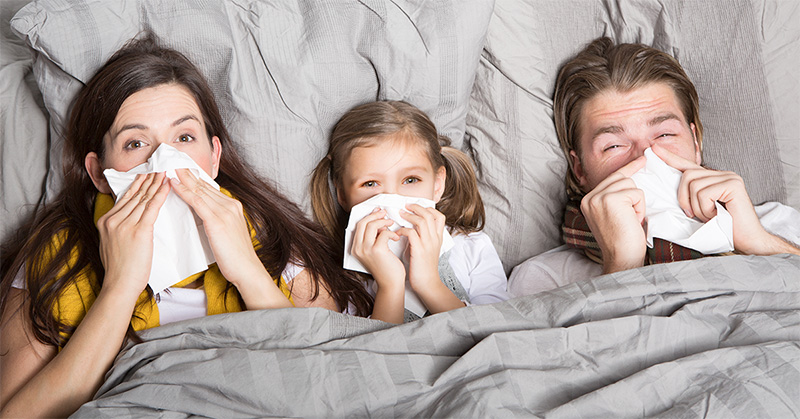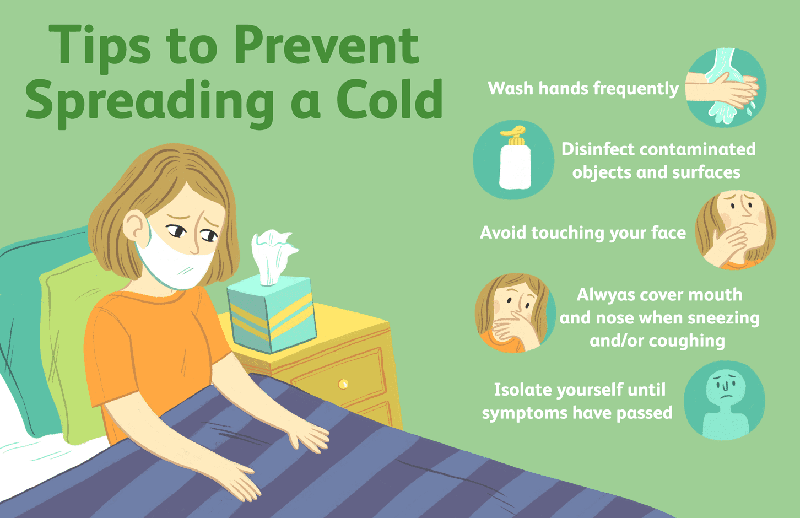Be Alert!! These 8 Diseases Occurs Frequently During Winter Season

This year winter is breaking all its previous records. Winter holidays are also extended due to severe cold days. A thick sheet of fog engulfed the national environment. It’s time to prepare ourselves for the chilling and harsh weather. Winter is that time of the year when you get irritated by your own dry skin and frequent flu and cold always ruin your vacation plans. Hospitals and clinics are filled with patients suffering from viral fever, pneumonia, cold and cough. Thus, it is essential to protect yourself from the cold weather and stay healthy throughout the season. Though it seems difficult, there are several ways to keep common diseases away from your family this winter season.
With the change in weather due to the winter season, the chances of getting the disease also increase. The warmness or heat of body heat experiences a drop during winter. Our body tries to adjust to the new climate, this change and adjustment are indicated through a number of diseases. Covering yourself with a blanket and wearing socks and sweaters are not enough to avoid diseases, but caution is also needed in winter. Some health issues, such as asthma, sore throat and dry skin, are triggered or worsened by cold weather.
Today, in our blog we are discussing about those 8 diseases which commonly occur in winter and ways to avoid them.
8 Winter Diseases That Occurs Frequently
1. Common Cold
The first thing that happens as the weather changes are the common cold and cough. The reason behind it is the sudden drop in temperature. Every second person at your home or office surroundings is either suffering from cold or cough. The cold is certainly a common condition but if not treated well then it may also convert into Acute Sinus.

However, if not treated early it could lead to severe headache, sore throat, mucus and nasal infection. To avoid the common cold, always wear multiple layers of clothes and try home remedies such as gargling hot water and take steam. Avoid citrus fruits and drinks.
Also Read: Follow These 6 Tips To Boost Your Health This Winter
2. Pneumonia
It is caused due to bacterial infection viruses and fungi. Cold is the early symptom of pneumonia if not taken care of it may get worse. In the case of pneumonia, the air sacs in the lungs may fill with fluid, causing cough with phlegm, fever, and you may get difficulty in breathing. In some cases, it gets cured with antibiotic doses and OPD treatment, but in a few cases, the patient might need care and treatment in a hospital due to severity in symptoms. If you had a cold for several days and suddenly develops a high fever and worsening cough, then this may be the symptoms of pneumonia.
3. Dry Skin
Dry skin is a very common condition during the winter season especially when the humidity is low. Itchiness, rashes, skin pigmentation, peeling of skin from palm are common in winters. Moisturizing your skin with cold cream, body lotion or petroleum jelly will protect your skin from drying. Skin dullness, cracking of lips and heels are also very common.

To avoid this, apply a natural moisturizer and massage it well, you can also consult a dermatologist. One should not take bath with hot water, this makes the skin drier.
4. Flu
Influenza or flu is indeed the most commonly faced health issue during the winter season. It is caused by the infectious respiratory virus. Ensure cleanliness and wash your hands properly before the meal to avoid bacteria. Always, cover your ears and wear socks to keep your body warm. People with a weak immune system are more prone to such disease. When the flu gets severe, patients may also lose his life. Always cover your mouth and nose with a tissue when you cough or sneeze, wash your hands and use hand sanitizer. Doctors recommend that don’t touch your face with unwashed hands as it’s the easiest way for germs to enter your body.
5. Sore Throat
Sore throat generally caused by a viral infection. In the winter season, the temperature changes constantly and the body temperatures fluctuate causing cough and sore throat. To avoid this, while going out of the house in the cold, one should cover the face with a scarf and gargle with a pinch of salt in lukewarm water. This reduces throat infection and relieves sore throat.
6. Asthma
In winter, the symptoms of asthma increase due to cold air. Asthma patients should take special care of themselves especially in winter. Difficulty in breathing and wheezing in the throat is common symptoms of asthma. In fact, due to the fog in the winter season, a huge amount of dangerous allergens are present in the air and breathing in this air increases the problem of asthma patients more. Due to which problems such as jerk, cough, chest tightness start emerging.

To avoid this problem, asthma patients should come out of the house by wearing masks on the mouth or cover their mouth with a loose scarf. Apart from this, asthma medicines should be taken regularly and the inhaler should always be kept with you.
7. Arthritis
Doctors believe that during cold times our body consumes too much heat and circulates blood to the heart and lungs. During this time the blood vessels of the arms, shoulders and knees shrink, due to which the joint pain starts. In winter, the pain of arthritis patients increases and they have constant pain in their knees. Which causes pain in their joints with stiffness and more difficulty in getting up. Exercise, massage joint with oil and warm water daily to avoid this.
Also Read: Joint Pain Management At Home
8. Hypothermia
This is a condition in which the body temperature falls below 35 ° C. Due to this, the body becomes very cold and when you get out of the house or come in contact with water, you feel colder than usual. Due to this, the body starts having problems shivering, fatigue and frequent urination. If its treatment is not started soon, then the person may also die due to this problem.

Hot foods should be eaten to avoid this, should not get out of the house if it gets too cold, wear warm layers of clothing, eat carbohydrates, drink fluids and move your body to help warm your core.









